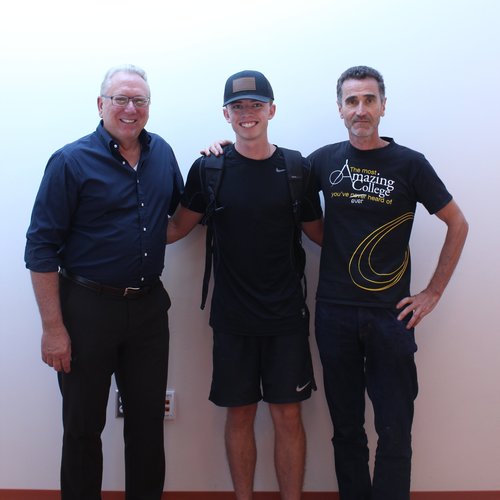By Robert Cain ’21

There is no doubt that CMC places a heavy emphasis on leadership, but does it actually inform or educate students on the qualifiers of good leadership? In previous years, leaders faced different challenges than leaders today. Therefore, leadership has evolved over time. It is important to address the ways in which these changes have impacted our current perception of good leadership so that we can successfully modify our leadership practices.
On September 24, the Kravis Leadership Institute hosted its first discussion in the Leadership Dialogue Series facilitated by David Day, Ph.D, Professor of Psychology and Steven L. Eggert ’82 P’15 Professor of Leadership, and KLI Academic Director. These intimate gatherings occur once a month with the goal of establishing a group of students and faculty who are deeply passionate about topics pertaining to leadership. For this discussion, the conversation evolved from two questions: what is the nature of good leadership, and how do we develop leaders for the 21st century?
According to Professor Day, having exposure to leadership studies or formal leadership roles is by no means a requirement to attend the dialogue series because “at the end of the day, we all hold an implicit leadership theory, regardless of our experience in formal leadership roles.” One student expressed how she felt unsure about attending due to her limited leadership experience, but this response quelled her concerns.
Interestingly, it was everyone’s different leadership background that informed the conversation because it encouraged diverse responses and perspectives. For example, when Professor Day asked the group about what they felt qualified as good leadership, each responder held a slightly different opinion than the next. To some attendees, good leaders have empathy, impact lives, and take responsibility for themselves and others. To others, good leaders listen, empower their communities, and respect the beliefs of others. Clearly, there is no one-size-fits-all definition for good leadership.
As for the second question about developing 21st century leaders, attendees agreed that the conditions for leaders have changed significantly. Lee Skinner, Professor of Spanish and Associate Dean of the Faculty, noted how 21st century leaders must know how to leverage and interact with technology. Moreover, “access to information has transformed the nature of leadership. Now, it’s more about what to do with information rather than simply knowing it. People, leaders included, must collaborate in order to succeed in the 21st century,” according to Fernanda Lozano ’20.
At the end of the session, I chatted with Jen Petrova ’19 who shared her thoughts on why it’s important to have these discussions on CMC’s campus.
How did you like today’s Leadership Dialogue Series?
I really liked how it was a combination of not only students but also staff and professors. Hearing everyone’s different opinions is extremely valuable especially when discussing the topic of leadership.
What did you learn today and how do you plan to apply what you learned to on-campus jobs and your future career?
I learned that leadership is ambiguous because good leadership can be subjective, but at the end of the day, leaders have a responsibility to the company, the people, and the planet. Also, I learned the value of not leading with an egocentric lens but rather thinking about how my leadership can improve the lives of others.
Do you think there are flaws in how CMC students view leadership? Is there room for improvement?
In general, I think there is always room for improvement in regards to leadership. One thing I love is how KLI not only offers classes in leadership but also hosts leadership dialogue series. This allows us to understand what we value in good leaders and then try to apply these traits in our professional lives. I definitely recommend more students attend these dialogue series as a way to enhance their leadership capabilities.
It’s true: good leadership can be ambiguous. However, KLI seeks to clarify this uncertainty by starting a dialogue around what it means to be a good leader, both on campus and in the workforce.
Join us for our next session on Monday, October 29 in Kravis 103 from 12:15 p.m. – 1:15 p.m.

